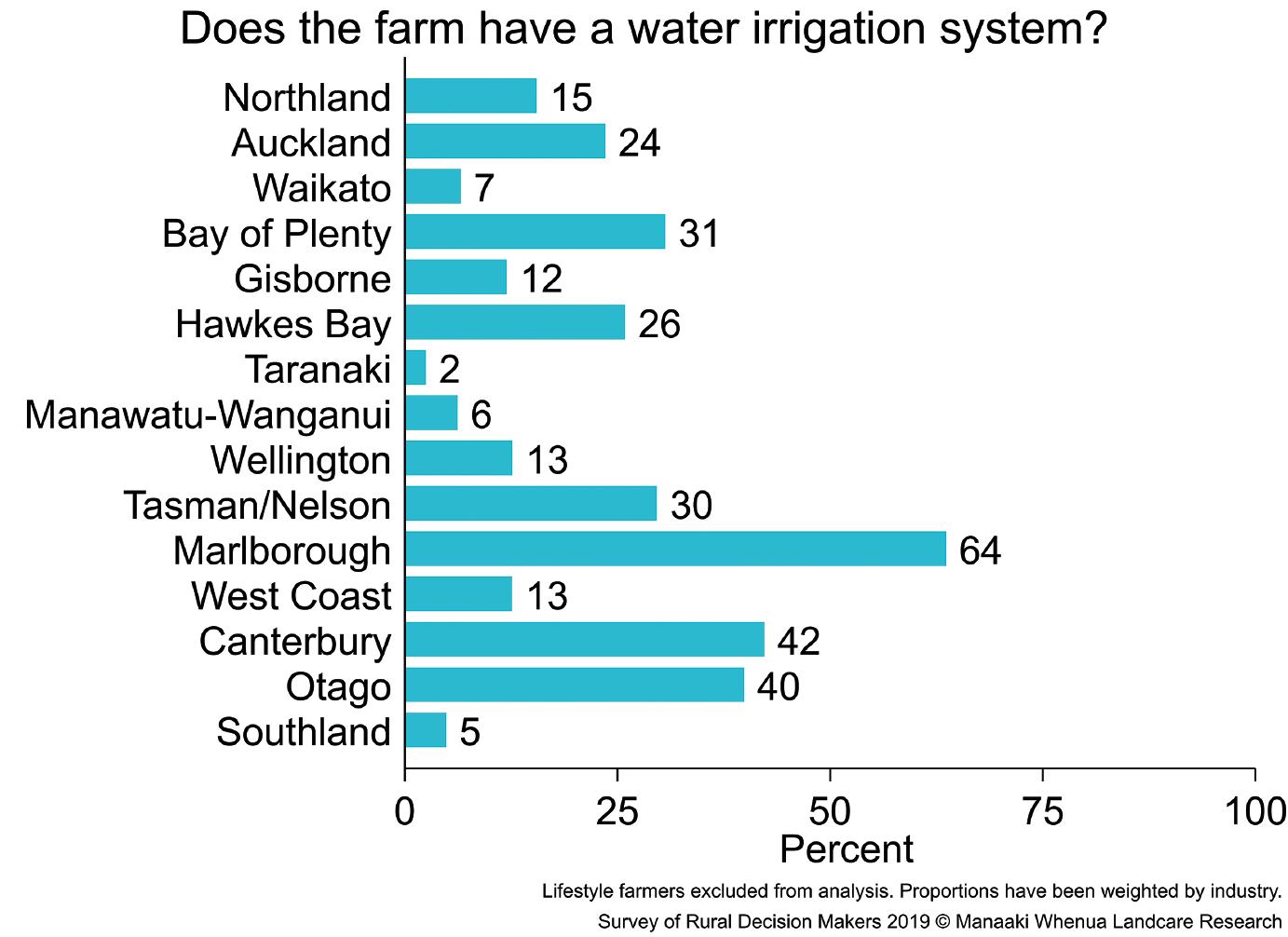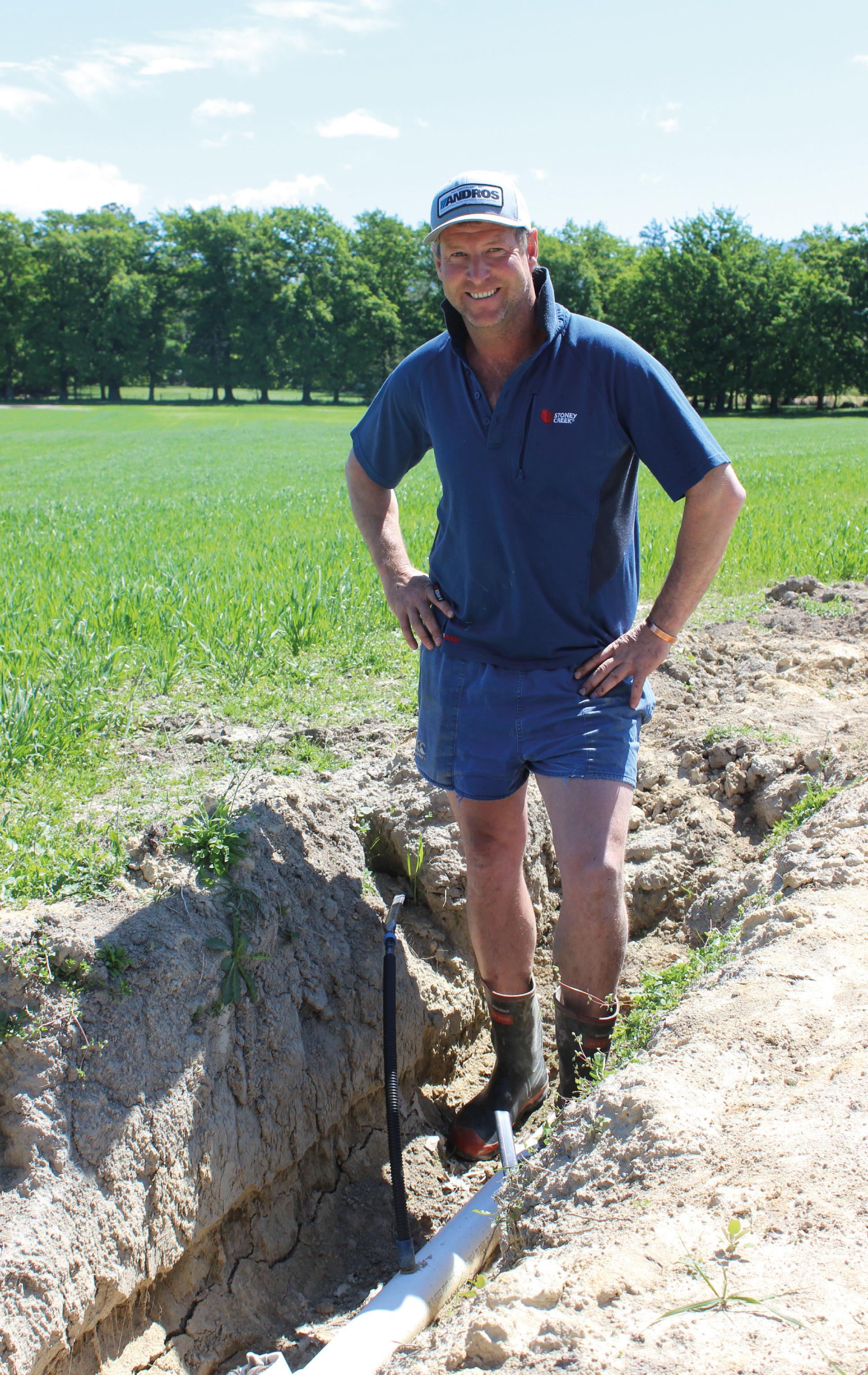
5 minute read
Ron Cocks Memorial Award 2020 Graeme Tulloch
Ron Cocks Memorial Award 2020
The Ron Cocks Award recognises a person who has made a significant contribution to irrigation in New Zealand.
Advertisement
J.R. (Ron) Cocks was a Mid Canterbury farmer, a pioneer, visionary and a leader in farming affairs. His greatest legacy to New Zealand was his leadership in water issues. The Memorial Award acknowledges that legacy and encourages others to follow his leadership.
The recipients of the Ron Cocks Memorial Award from 2008 to 2016 were: • Sid Hurst in 2008 • Allan Hubbard in 2010 • Brian Cameron in 2012 • Bob Engelbrecht and Grant McFadden in 2014 • Tony Banks and Robin Murphy in 2016 • Gavin Dann and Terry Heiler 2018
This year the Ron Cocks Memorial Award was awarded posthumously to Graeme Tulloch.
Graeme Tulloch
Graeme Tulloch was a thought leader and made considerable contribution to irrigation in the Wairarapa. He successfully ran his own businesses and was a mentor for many. Graeme dedicated his working life to improving efficiencies in the agricultural sector until his passing in November 2019, age 83.
Graeme was a farmer in the Wairarapa and also ran a farm machinery business. Entrepreneurial, innovative and hard working, he forged a hugely successful career on and off the farm. Graeme’s love for agriculture started at a young age when he was in the cow shed at the age of 10. Graeme loved physical work however, after recovering from illness when he was 18, he went into a ‘softer’ job and was on the road selling machinery. He was very successful at this and it led him to start his own machinery business with his father William known as Bill and brother David. Together they began an importing and manufacturing farm machinery business in the 1960s. At its height Tulloch Farm Machines had more than 50 dealerships stretching from Kaitaia to Invercargill. Now called Tulloch Imports Ltd, it is operated today by Graeme’s son John. As a farming business, Graeme’s TSM Farms Ltd was equally impressive. The business, formed in 2002 with two other families (Searle and Marfell) it included four farms – two dairy farms, a sheep and beef farm and an arable farm, all in the Wairarapa. These farms are still in the families today. Graeme and late wife Lillian-Estelle (known as Stella) had four children. Chris was the oldest daughter (Bell) followed by sons John and Steve (Tulloch) and youngest daughter Liz (Bosch). Graeme’s son John said his dad was a hard worker and loved agriculture and it was always a goal of his to have his own land and the machinery business allowed him to achieve this. Even in his retirement he was still involved with the farming business and was always looking for ways to progress further farm developments John said. He said his father truly was an amazing man and although he struggled with dyslexia he turned what could’ve been a negative into a positive.
“He worked around the weaknesses of struggling to read and write and ultimately it made him stronger … things that should’ve been setbacks he turned to his advantage and that was one of the important things he taught me.”
Graeme was widely recognised as one of the Wairarapa’s most knowledgeable and innovative farmers. A long-term thinker and early adopter of new ideas he was always prepared to push the envelope to find solutions to securing reliable water for irrigation.
Graeme Tulloch.
WATER FOR THE GREATER GOOD
Graeme was a leading figure in initiating discussions around establishing a more reliable source of water for the Wairarapa. What sparked Graeme’s passion for water and water use was the 1997–98 drought and the impact it had on the Wairarapa farming community. He successfully helped lobby Government to fund a research project “… things that should’ve into the potential for water storage schemes in the been setbacks he Wairarapa, which started turned to his advantage in the early 2000s. He was and that was one of a founding member of the Wairarapa Irrigation Trust, the important things formed in 2007 to build on he taught me.” previous investigative work. It commissioned preliminary studies that indicated strong potential for irrigated land that didn’t have access to water. The trust continued to work and provide farmers and other groups with information on how irrigation could work for them. He continued to advocate for a regionwide water storage scheme and believed it was the “single biggest thing we can do to make this district grow.” While not directly involved with the
present Wairarapa community water storage project, his early leadership, vision and guidance had a major influence on the investigations progressing to the stage where the scheme now looks increasingly likely.
COMMUNITY STALWART
Graeme was extremely generous in his willingness to share with others his knowledge and experience with irrigation. He was a mentor in the agricultural sector and other sectors. He led by example, setting a benchmark in farming innovation from which many other farmers and businesses followed. He represented farmers and the wider community by serving on local Government including four terms as a Masterton District Council councillor and one term as a South Wairarapa District Councillor. He also had a long stint on the Wellington Harbour Board as well as numerous directorships. He was passionate about the value of water to unlock production and economic gain for all. He was clearly a dairy farmer however, he often said if he was starting out again he would be into some sort of horticulture. He saw the movement of water to the highest value land use as an inevitable and positive thing. He was very comfortable broadcasting these ideas to his peers, the agricultural community and local politicians. His quiet and controlled style cut through the noise.
Christine Tulloch (left) and John Tulloch receive the Ron Cocks award from IrrigationNZ chairwomen Keri Johnston on behalf of their late father Graeme Tulloch.















